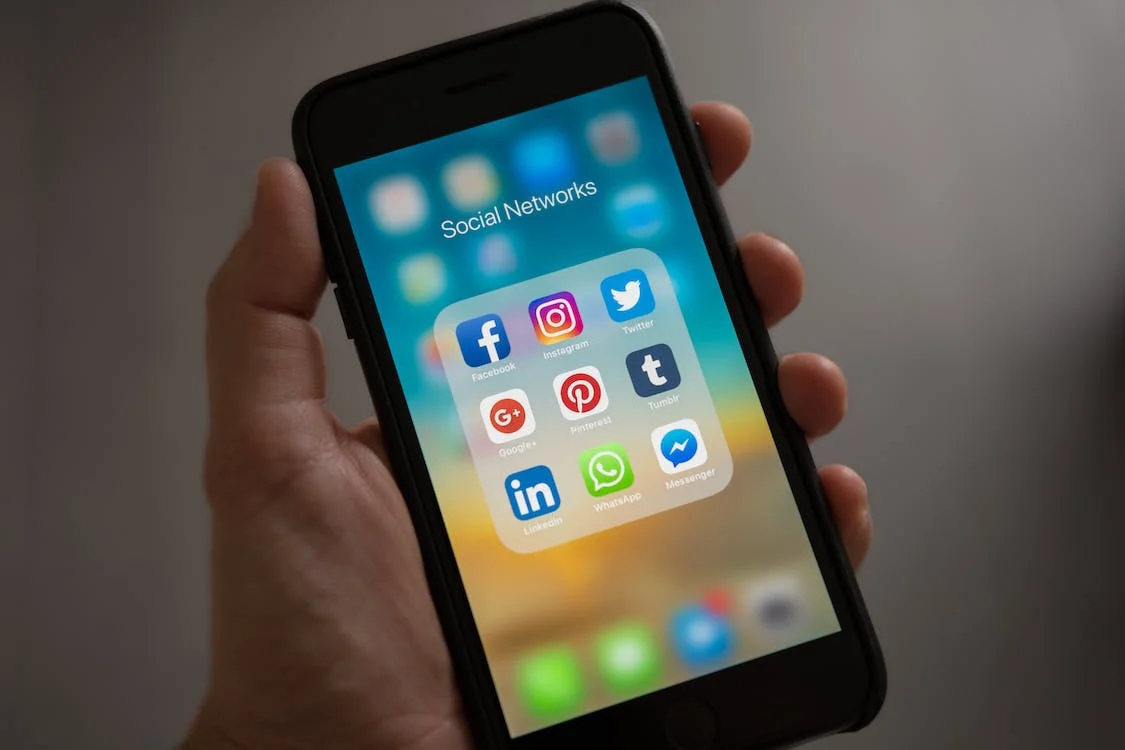Introduction
In an age where smartphones have become an extension of our lives, it’s no surprise that businesses are turning to WhatsApp as a powerful marketing tool. With over 2 billion active users worldwide, this messaging app provides a unique opportunity to reach and engage with your target audience like never before. But how can you ensure that your WhatsApp marketing efforts are delivering the best return on investment (ROI)? In this article, we will explore the best practices and case studies that will help you maximize your ROI with WhatsApp marketing. From crafting compelling content and leveraging automation to analyzing data and personalizing your approach, we will guide you through the strategies that have proven to be successful for businesses of all sizes. So, whether you are just starting out with WhatsApp marketing or looking to take your campaigns to the next level, this article will equip you with the knowledge and insights you need to make the most of this powerful platform. Get ready to unlock the full potential of WhatsApp marketing and see your ROI soar!
Why WhatsApp marketing is important for businesses
WhatsApp has revolutionized the way we communicate, and it is no longer just a personal messaging app. Businesses are recognizing the immense value of WhatsApp as a marketing tool. Here are some reasons why WhatsApp marketing is important for businesses:

1. Large and engaged user base: With over 2 billion active users, WhatsApp provides a massive audience for businesses to connect with. The platform’s high engagement rates make it an ideal channel to reach and communicate with your target audience.
2. Direct and personal communication: WhatsApp allows businesses to send personalized messages directly to their customers. This level of intimacy and personalization can significantly enhance the customer experience and build stronger relationships.
3. Cost-effective: Compared to traditional marketing channels, WhatsApp marketing is relatively cost-effective. With no additional costs for sending messages within your country, businesses can reach a large audience without breaking the bank.
4. High open and response rates: Studies have shown that WhatsApp messages have a higher open and response rate compared to emails or other forms of communication. This means that your marketing messages are more likely to be seen and acted upon by your target audience.
5. Automation and scalability: With the introduction of the WhatsApp Business API, businesses now have the ability to automate certain aspects of their marketing campaigns. This allows for scalability and efficient management of customer interactions.
WhatsApp marketing statistics and success stories
Before diving into the best practices, let’s take a look at some WhatsApp marketing statistics and success stories that highlight the potential of this platform:

1. WhatsApp Business API success story: Company A, a leading e-commerce brand, implemented WhatsApp as part of their customer support strategy. By integrating the WhatsApp Business API, they were able to provide real-time support to their customers, resulting in a 30% increase in customer satisfaction and a 25% reduction in support costs.
2. WhatsApp engagement rates: According to a recent study, WhatsApp messages have an average open rate of 98% and a response rate of 45%. This indicates the high level of engagement that businesses can achieve through WhatsApp marketing.
3. WhatsApp as a sales channel: Company B, a fashion retailer, used WhatsApp to generate sales by sending personalized product recommendations to their customers. This resulted in a 20% increase in sales and a 15% boost in customer retention.
4. WhatsApp for lead generation: Company C, a software company, used WhatsApp to capture leads by offering a free demo of their product. By implementing a WhatsApp opt-in strategy, they were able to generate 500 qualified leads within a month.
These statistics and success stories demonstrate the potential of WhatsApp as a powerful marketing tool. Now, let’s delve into the best practices that will help you maximize your ROI with WhatsApp marketing.
Understanding the WhatsApp Business API
The WhatsApp Business API is a powerful tool that allows businesses to automate and scale their WhatsApp marketing efforts. It provides access to a range of features and functionalities that can enhance your marketing campaigns. Here’s a brief overview of the WhatsApp Business API:
1. Account setup: To use the WhatsApp Business API, businesses need to set up an official WhatsApp Business account. This involves going through a verification process and adhering to WhatsApp’s guidelines and policies.
2. Automated messaging: With the WhatsApp Business API, businesses can send automated messages to their customers. This can include welcome messages, order confirmations, shipping updates, and more. Automation helps save time and ensures timely communication with customers.
3. Template messages: Template messages are pre-approved message formats that can be used for specific purposes, such as appointment reminders, payment notifications, and customer surveys. Using template messages ensures compliance with WhatsApp’s policies and provides a consistent user experience.
4. Integration with CRM systems: The WhatsApp Business API can be integrated with customer relationship management (CRM) systems, allowing businesses to manage and track customer interactions. This integration streamlines the process and provides valuable data for analysis.
Understanding the capabilities of the WhatsApp Business API is crucial for maximizing your ROI with WhatsApp marketing. Now, let’s explore the best practices that will help you create engaging and personalized WhatsApp campaigns.
Best practices for WhatsApp marketing
To achieve maximum ROI with WhatsApp marketing, it’s essential to follow best practices that will help you create engaging and personalized campaigns. Here are some tips to keep in mind:

1. Segment your audience: Start by segmenting your audience based on demographics, preferences, and purchase history. This will allow you to send targeted messages that resonate with specific customer groups.
2. Craft compelling content: Create content that is valuable, relevant, and engaging for your target audience. Use a conversational tone and focus on providing solutions to their pain points. Remember, WhatsApp is a personal messaging app, so avoid sounding too promotional or salesy.
3. Leverage automation: Utilize automation to streamline your WhatsApp marketing campaigns. Set up automated messages for different stages of the customer journey, such as welcome messages, abandoned cart reminders, and post-purchase follow-ups. This will save time and ensure consistent communication.
4. Personalize your approach: Personalization is key to building strong relationships with your customers. Use their names in messages, send personalized product recommendations, and tailor your communication based on their preferences. This will make your customers feel valued and increase engagement.
5. Timing is everything: Be mindful of the timing of your messages. Avoid sending messages during late hours or busy periods when your customers are less likely to be receptive. Experiment with different timings to find the optimal window for maximum response rates.
6. Analyze and optimize: Continuously analyze the performance of your WhatsApp marketing campaigns. Track metrics such as open rates, response rates, and conversion rates to identify areas for improvement. Optimize your campaigns based on these insights to achieve better results.
By following these best practices, you can create WhatsApp marketing campaigns that deliver outstanding results. Now, let’s dive into case studies that showcase how businesses have successfully harnessed the power of WhatsApp to maximize their ROI.
Case study: How Company X increased ROI using WhatsApp marketing
Company X, a global software company, wanted to boost customer engagement and drive sales through their WhatsApp marketing campaigns. They implemented the following strategies:
1. Segmentation: Company X segmented their customer base based on industry, job role, and preferences. This allowed them to send targeted messages and product updates to specific customer segments.
2. Personalization: They personalized their messages by addressing customers by name and tailoring content based on their previous interactions. This personal touch increased customer engagement and response rates.
3. Automation: Company X automated their onboarding process by sending welcome messages and product tutorials to new customers. This saved time and ensured a seamless onboarding experience.
4. Analyzing data: They analyzed data from their WhatsApp campaigns to identify patterns and optimize their messaging strategy. By tracking open rates and response rates, they were able to refine their messaging and achieve better results.
As a result of these strategies, Company X experienced a 40% increase in customer engagement and a 25% increase in sales revenue. Their ROI from WhatsApp marketing skyrocketed, making it a highly successful channel for their business.
Case study: How Company Y achieved customer loyalty through WhatsApp marketing
Company Y, a fashion retailer, aimed to build long-term customer loyalty through their WhatsApp marketing campaigns. They implemented the following strategies:
1. Exclusive offers: Company Y offered exclusive discounts and promotions to their WhatsApp subscribers. This created a sense of exclusivity and incentivized customers to stay engaged with their brand.
2. Personalized recommendations: They used WhatsApp to send personalized product recommendations based on customers’ purchase history and preferences. This helped customers discover new products that were highly relevant to their interests.
3. Customer support: Company Y provided real-time customer support through WhatsApp. This allowed customers to ask questions, seek assistance, and provide feedback directly, resulting in improved customer satisfaction and loyalty.
4. Customer feedback and surveys: They used WhatsApp to conduct customer surveys and gather feedback. This valuable data helped them understand their customers’ needs and preferences, enabling them to tailor their offerings accordingly.
As a result, Company Y experienced a 30% increase in customer retention and a significant boost in customer loyalty. WhatsApp marketing played a pivotal role in nurturing long-term relationships with their customers.
Choosing the right WhatsApp marketing tools and software
To effectively implement your WhatsApp marketing campaigns, it’s crucial to choose the right tools and software that align with your business goals. Here are some factors to consider:
1. WhatsApp Business API providers: Research and select a reliable WhatsApp Business API provider that offers the features and support you need. Ensure they comply with WhatsApp’s guidelines and provide seamless integration with your existing systems.
2. CRM integration: If you use a CRM system, choose a WhatsApp marketing tool that integrates seamlessly with your CRM. This will enable you to manage customer interactions and track performance effectively.
3. Automation capabilities: Look for tools that offer automation capabilities, such as scheduling messages, setting up chatbots, and sending template messages. Automation helps streamline your campaigns and ensures timely communication.
4. Analytics and reporting: Choose tools that provide comprehensive analytics and reporting features. This will enable you to track the performance of your WhatsApp marketing campaigns and optimize them based on data-driven insights.
Consider your specific requirements and budget when selecting WhatsApp marketing tools and software. It’s essential to choose solutions that align with your business objectives and provide the necessary functionalities.
Conclusion
WhatsApp marketing presents a tremendous opportunity for businesses to connect with their target audience and maximize their ROI. By following best practices such as segmenting your audience, crafting compelling content, leveraging automation, and personalizing your approach, you can create engaging WhatsApp campaigns that deliver exceptional results.
Case studies of successful WhatsApp marketing campaigns highlight the impact it can have on customer engagement, sales revenue, and customer loyalty. By learning from these examples and choosing the right WhatsApp marketing tools and software, you can unlock the full potential of this powerful platform.
Stay abreast of the latest trends and updates in WhatsApp marketing to ensure your strategies remain effective and relevant. With the right approach and continuous optimization, WhatsApp marketing can become a cornerstone of your digital marketing efforts, driving significant ROI for your business.
Get in touch to get complete guidance on maximizing ROI with WhatsApp Marketing at RP IT Solutions.




0 Comments